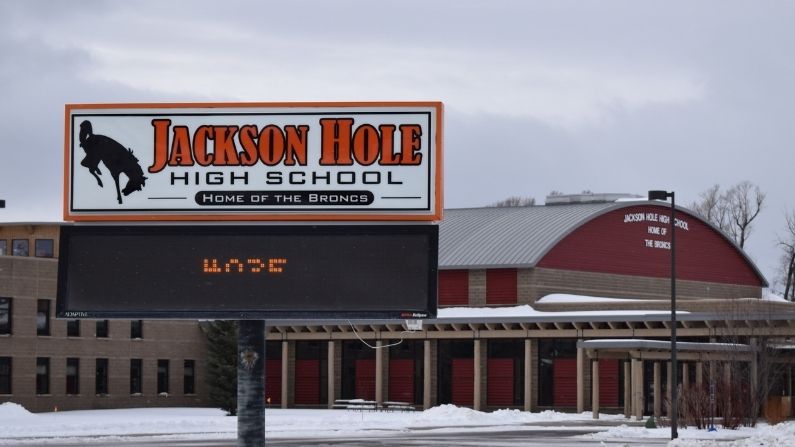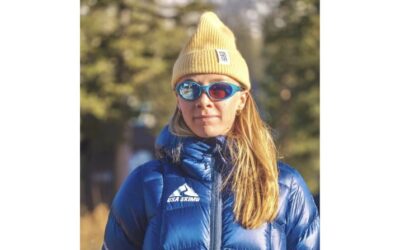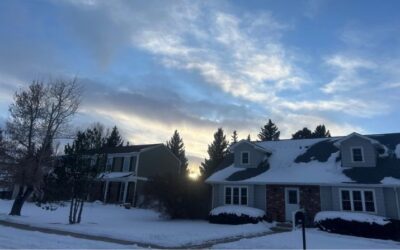Jackson Hole High School Principal Scott Crisp was recently named Wyoming Principal of the Year by the Wyoming Association of Secondary School Principals. Crisp was recognized in particular for his leadership and vision amid a rapidly changing academic landscape. KHOL’s Will Walkey caught up with Crisp to talk about how he’s been handling a near return to full in-person learning at the high school, and his plans for the coming academic year. The following transcript has been lightly edited for brevity and clarity.
Will Walkey: Principal Crisp, thanks so much for talking to KHOL.
Principal Scott Crisp: You’re welcome. Happy to be here.
Walkey: I’m wondering, first of all, your first impressions of opening back up to that four-day-a-week schedule and everything like that. How’s that been going?

Scott Crisp has been Principal of Jackson Hole High School since 2009. (Courtesy of Scott Crisp)
Crisp: Overall, I can tell you with strong confidence that I feel like our return has been a positive thing at the high school. Initially, yes, we had some very initial nervous energy around that shift. I think that’s a completely natural reaction. However, [there were] a few things, William, that really helped us. Our high school has been engaged with using what they call a Learning Management System for about eight years now. We’re one of the first high schools in the state to use an LMS. What that essentially allows a teacher to do is post all of their assignments and interact with kids in a digital format. That was in our school already.
And also coupled with that, our school had run what we call a blended learning program prior to COVID. And what that program allowed students to do is have options on when to attend face-to-face teaching based off of their immediate needs. Versus being required to go every day regardless of their needs. When we had to shift when COVID hit, I won’t go as far as to say it was easy, but it was much more seamless for us than I think it was for a lot of other high schools across the country.
Walkey: Can you just speak a little bit on how you’ve been able to, despite going back to more in-person classes, try to keep everything safe at the high school for those that are immunocompromised?
Crisp: For the entire year, we’ve had a virtual school option for students to take classes at a distance. That’s a very important model piece that we provided options for kids. So if a student was gone, or sick, or had a County order, they could still connect with their teachers and fellow students. I was in several rooms doing observations and evaluations where I would see the teacher taking their iPad and setting it into a group of three or four students. So one student’s at home working with the three students in the classroom in real-time so they didn’t miss a beat. Not a perfect system, but better than most people could have imagined. So I’m really happy about some of those adjustments.
Walkey: I’m curious if you’ve witnessed a kind of reverse culture shock from people going back. Like, “wow, we’re kind of getting to the point where it’s starting to be back to normal.”
Crisp: So that’s a great question. I think I can answer that question like this. I hope that we just don’t all say, “let’s go back to the way it was completely.” Most hybrid-type systems that work, work because students have [a] choice to take them. When you force a hybrid or blended system on a student, no matter who they are, you generally are going to have those that do well and those that don’t do well. So we’ve learned a lot about that. And I hope we can acknowledge as an educational system that maybe not every kid needs to have the exact same model all the time. We want to make sure that we take some of the lessons we’ve learned and apply them going forward fully realizing that some students do need that traditional structure. But I would hate to see us lose some of the things that we’ve learned that provide students with flexibility at the high-school level.
Walkey: I’m curious if you can speak to a little bit of your success, but also the school district’s success in general. What was it about you and your staff this year [that allowed you to be] able to keep a level head and remain successful despite all the different variables being thrown in your direction?
Crisp: First of all, just speaking about the Wyoming principal award, I’m only as good as my staff in our building, and I’m only as good as the community and student support that I have. And that starts with our Superintendent and our Board of Education, and that trickles down. And so that is a fundamental reason that I’m in the position that I’m in.
We have a lot of work to do here at Jackson Hole High School. We have a gap of learning that I do not want to see increase. When I say a gap, we have a very strong academic population here that does very well. And we have a population that needs extreme supports to be post-secondary-ready. It is our goal here to continue to lift everyone. We can’t control everything that occurs with our students out of the school day, and coming out of COVID, there [have] been so many things that have impacted the student’s ability to focus and be part of learning.
Our staff too, have just really gone through a lot. And I think it’s very important to recognize that. I know our new Secretary of Education at the national level will be doing a lot of work on the teaching profession. Raising the teaching profession and acknowledging the amazing things that teachers have done across the country during the pandemic. So, I’m excited about that.
Principal Crisp said he anticipates that Jackson Hole High School will return to one of its pre-pandemic blended scheduling models next year to allow for the maximum number of options for local students.






